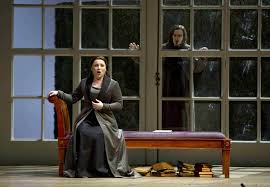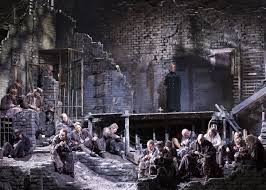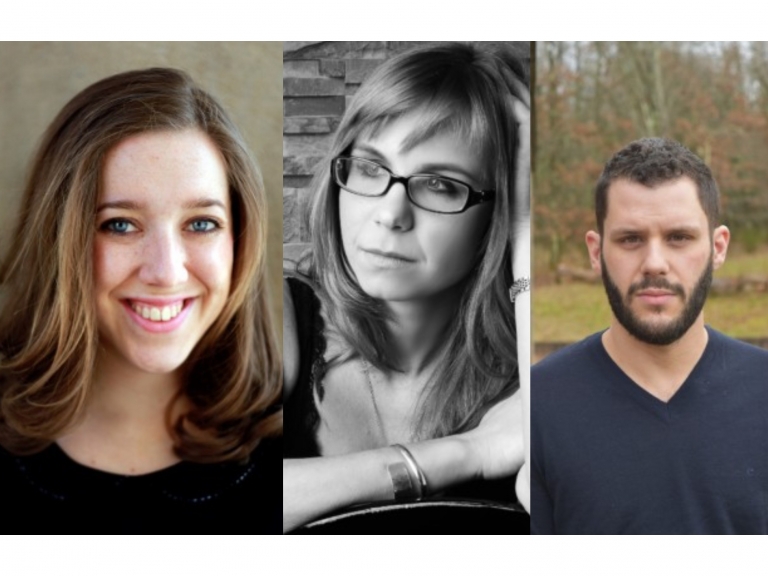Apollo Theatre, Oxford, 28-29 November 2017
It was a pleasure to see both of these productions back in the repertoire and so well presented. The link may have been a little tenuous but the experience of the individual works was never in doubt.

James Macdonald’s approach to Eugene Onegin becomes increasingly challenging as it goes on. We have little real sympathy with Tatyana in her letter scene, as she seems emotionally limited no matter how extrovert she claims to be, but by the end it is Onegin himself who troubles us as he loses all sympathy in a welter of self-flagellation.
This narrative is carefully constructed and set within the three large choral scenes which are expertly handled by the WNO chorus. The mistakes in the choreography were either brilliantly planned to look naturalistic or were covered in a highly professional way by the respective chorus members. Either way it was a delight.
Natalya Romaniw, as Tatyana, is actually Welsh despite her Ukranian name and matures intelligently as the evening progresses. The voice is never in doubt but her reaction to Onegin seems, on reflection, unnecessarily harsh. He does not come over as arrogant in the opening scenes even if he is a fish out of water. She is at her best in the final act where – like Trollope’s Lady Glencora – she has learned how the world works and actually rather likes it, even if she has a moment of self-doubt.
Nicholas Lester’s Onegin is suave from the start but seems, psychologically, to absorb all the worst traits of Lensky once he has killed his friend. In the final act we are led to believe for a moment that Lensky is still alive but it is actually Onegin, now tousle haired and unshaven. He has had a total meltdown, and if he was out of his depth with the peasants at the start he is even more so now with the true aristocracy. No such problem for Tatyana who has taken to the life as a duck to water.
Jason Bridges is a finely sung Lensky but one whose naivety lets him down to say nothing of failing the excellent Olga of Claudia Huckle.
Of the large cast Liuba Sokolova particularly impressed at Filipyevna, and though Miklos Sebestyen only has the one aria as Gremin he certainly made the most of it – setting the seal on Onegin’s fate with deft simplicity.
Ainars Rubikis handled his large forces with skill from the pit and was not afraid to allow the sentimentality to take over when needed.

The following night brought us to the darkness of Janacek’s From the House of the Dead in David Pountney’s moving production of 1982. It is as stark as ever and if anything even more relevant in the light of refugee camps and the rise of right-wing parties. The narrative is concerned with prisoners telling their own stories – a reality of many camps where the only way to remind yourself you count and are human is to retell your story, no matter how bleak or evil it may appear to be.
We learn very little of Goryanchikov, who appears to be the only real political prisoner, and the only one who is freed at the end. In Ben McAteer’s characterisation he is at once sympathetic but also a total outsider to the rest of the prisoners.
Alan Oke’s Skuratov tells of his love for Luisa – an affair which comes to nothing – and in the final scene Simon Bailey’s Shishkov insists on giving all the grizzly details of his marriage.
Nothing is comfortable in the work, though there are numerous moments when light seems to break through; none more so than the end when the eagle is released – a sign of hope even when the prisoners themselves have little or none.
Tomas Hanus drove the score strongly. The opening prelude was particularly impressive setting the emotional state of the work, but there are no easy moments. The stage design by Maria Bjornson is as effective as ever and strongly lit by Chris Ellis.



